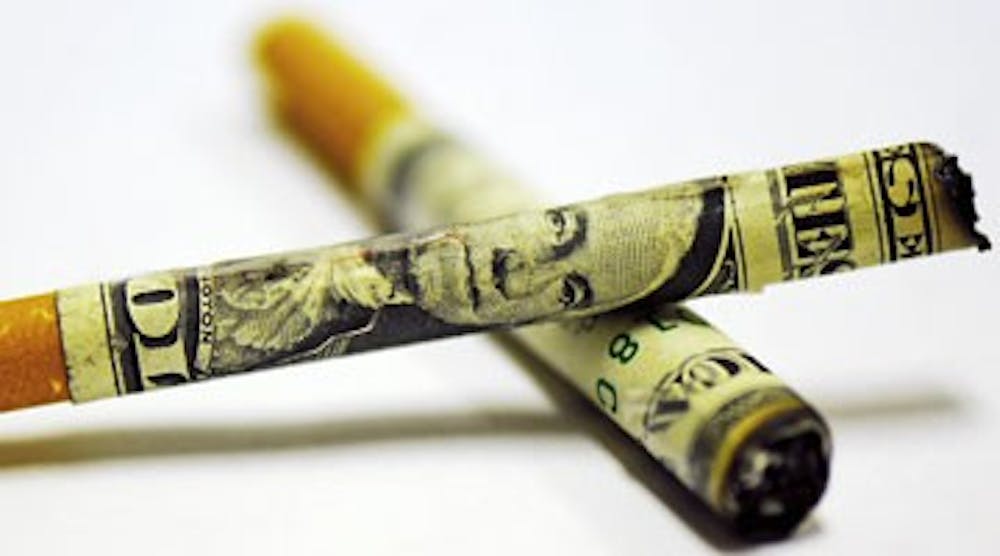Handing out money might be a way to encourage people to quit smoking.
After more than four years of research, director of Penn's Center for Health Incentives Kevin Volpp and his team found that providing financial incentives for quitting smoking might decrease smoking rates in the long run.
According to Volpp, smoking is the leading cause of preventable mortality in the United States. Each year, about 438,000 Americans die of smoking-related causes.
Seventy percent of smokers say they want to quit, but only 2 to 3 percent are able to, according to Volpp.
"Given this, we thought incentives to help people quit could be an effective way to address this major public-health problem," he wrote in an e-mail.
The results of the study were published in The New England Journal of Medicine in early February.
The research for the study was conducted among 878 General Electric employees nationwide, Volpp explained.
While the workers participated in smoking-cessation programs, some were given financial incentives worth up to $750 at the same time.
Employees received $100 if they participated in the smoking-cessation program and $250 if they quit smoking any time in the first six months. If they did not start smoking again for another six months, they received an additional $400.
Volpp added that participants received the money only after they went through tests to ensure they had actually stopped smoking.
According to the study, quitting rates were almost three times higher than the regular group, which did not receive financial incentives.
The study also found that quitting rates dropped from about 15 percent to 9 percent when the research team stopped giving out money to workers.
"This indicates that financial incentives can be a highly effective way of increasing smoking-cessation rates in employer settings," Volpp wrote.
He added that he hopes employers will apply results to their employee policies.
"Employers nationally are very interested in these approaches since there is good evidence that smokers cost employers about $3,400 per year in lost productivity and higher health-care costs," Volpp wrote.
He added that he expects other places will also regard financial benefit as an option to discourage people from smoking.
"There will be more such efforts to use incentives to help people quit smoking in the future," Volpp wrote.



